Find Help
More Items From Ergsy search
-

GP Nursing Most Common Medications UK.
Relevance: 100%
-
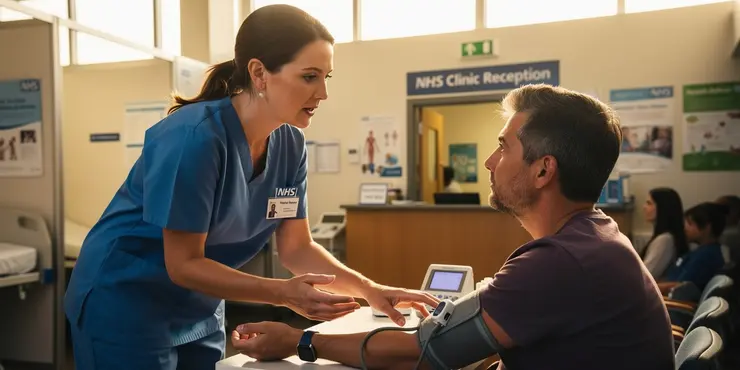
Can I become a nurse in the NHS with a nursing diploma?
Relevance: 63%
-

The role of residential and nursing homes
Relevance: 61%
-

The role of residential & nursing homes
Relevance: 59%
-

How do I choose a good nursing home?
Relevance: 59%
-

Can I become an NHS nurse if I have international nursing qualifications?
Relevance: 59%
-
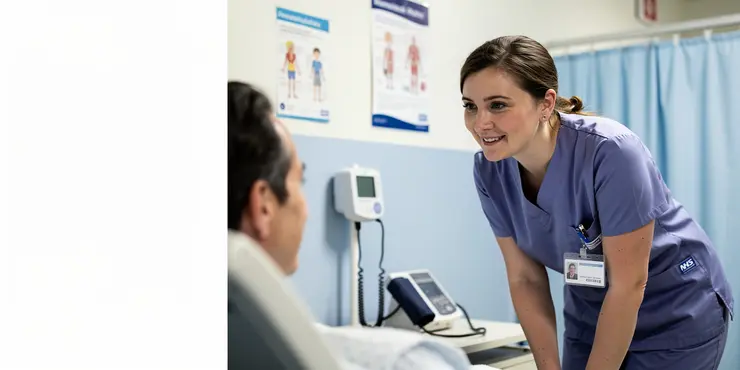
What skills are important for a career in nursing?
Relevance: 58%
-

How are care homes different from nursing homes?
Relevance: 58%
-
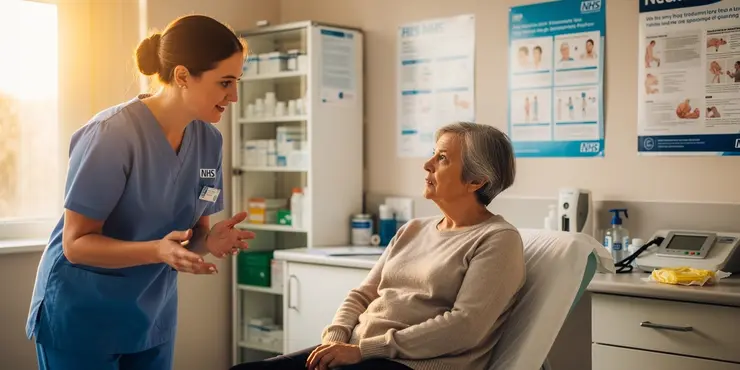
Do I need to be registered with the Nursing and Midwifery Council (NMC) to work as an NHS nurse?
Relevance: 57%
-
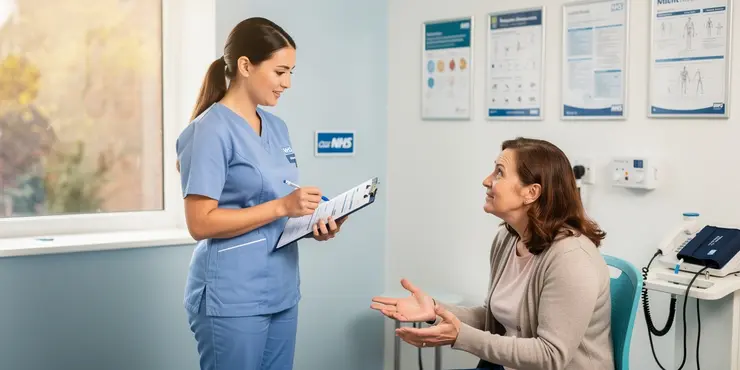
What GCSEs or A-Levels do I need to become a nurse?
Relevance: 57%
-

Is it possible to study nursing part-time?
Relevance: 55%
-

How can I become an NHS Nurse in the UK?
Relevance: 55%
-
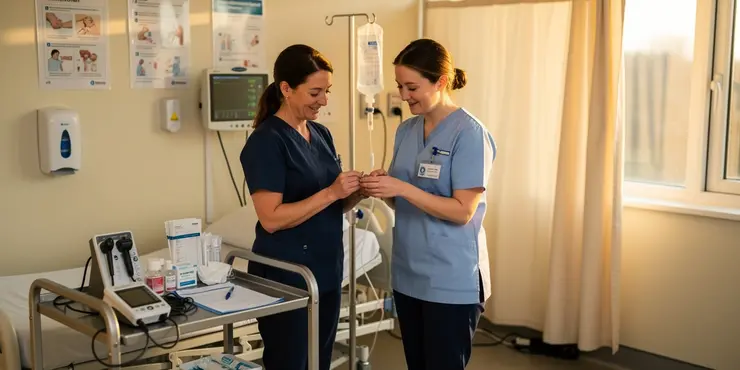
What types of nursing degrees can I pursue?
Relevance: 55%
-
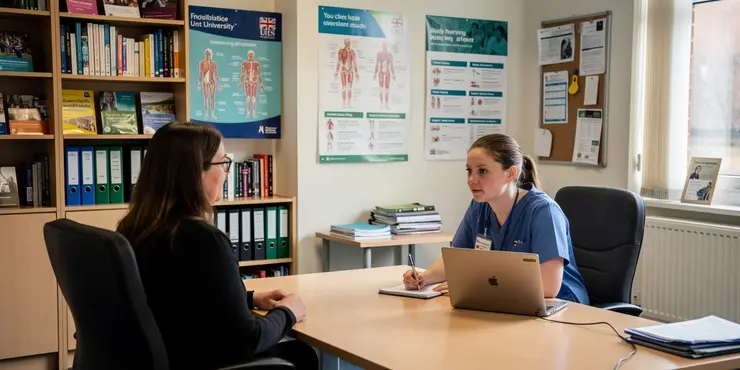
What is the process for applying to a nursing degree course?
Relevance: 54%
-

What are the career progression opportunities for NHS nurses?
Relevance: 54%
-

What funding options are available for nursing students in the UK?
Relevance: 53%
-

Is there a minimum age requirement to start nurse training?
Relevance: 53%
-

What are the basic educational requirements to become an NHS nurse?
Relevance: 53%
-

Are there any apprenticeship routes to becoming an NHS nurse?
Relevance: 53%
-

How important is work experience for entering a nursing program?
Relevance: 53%
-
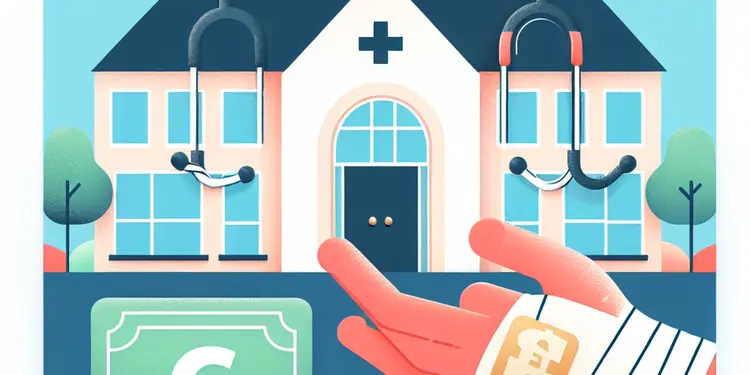
Do care homes provide medical care?
Relevance: 52%
-

How long does it take to become an NHS nurse?
Relevance: 52%
-
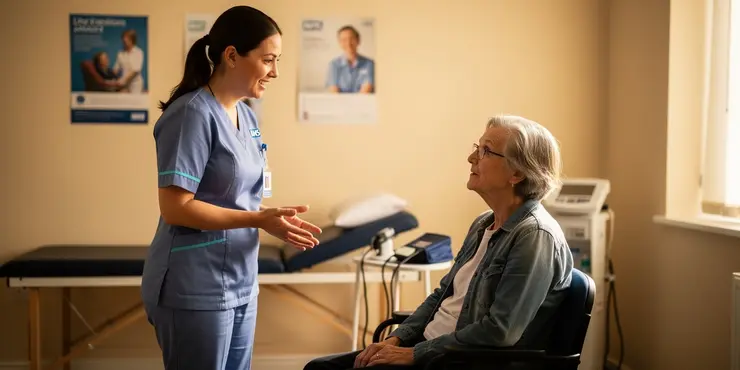
Are there any common side effects of GLP-1 medications?
Relevance: 51%
-
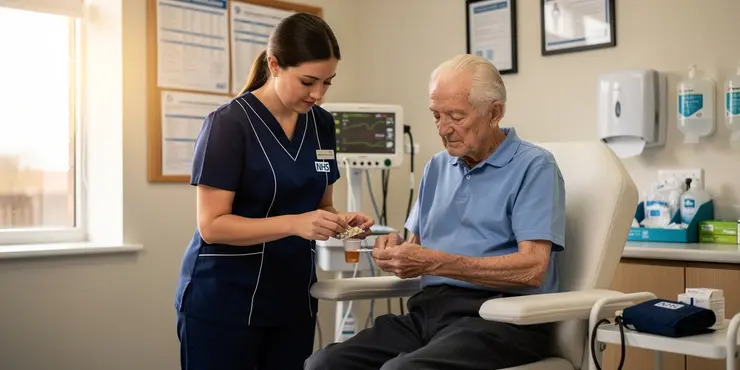
What medications are commonly prescribed for heart failure?
Relevance: 50%
-

What medications are commonly used to treat BPH?
Relevance: 50%
-

Is live-in care an alternative to nursing homes?
Relevance: 50%
-

Will I still have access to doctors and nurses on a virtual ward?
Relevance: 50%
-
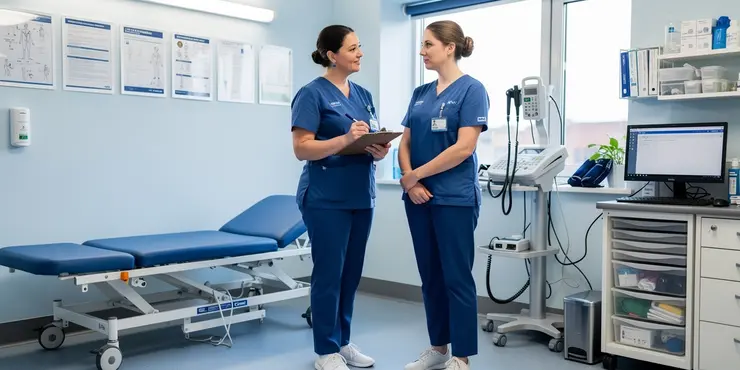
What support systems are available to NHS nurses for continuing professional development?
Relevance: 49%
-

Are headaches a common side effect of weight loss medications?
Relevance: 47%
-
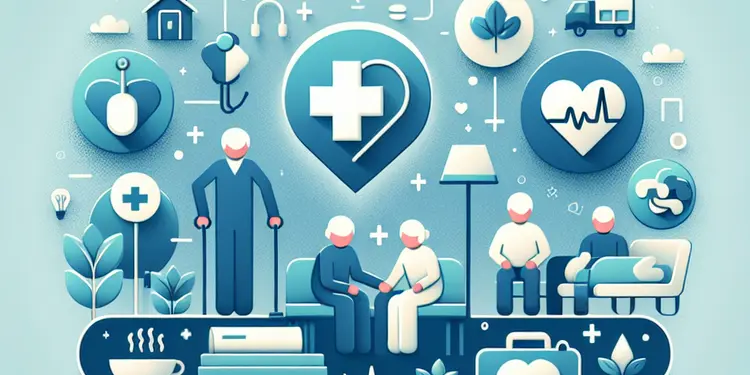
Does live-in care include medical services?
Relevance: 47%
-

South London Arrhythmia Nurses Forum (16 June 2022)
Relevance: 41%
-

Can I specialize in a certain area of nursing with the NHS?
Relevance: 37%
-
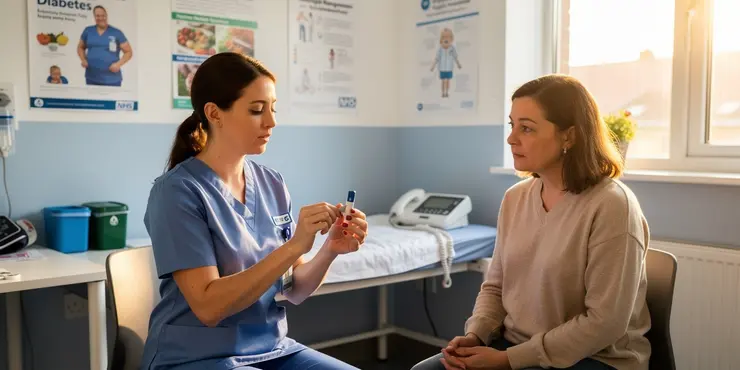
Are GLP-1 medications injectable?
Relevance: 37%
-
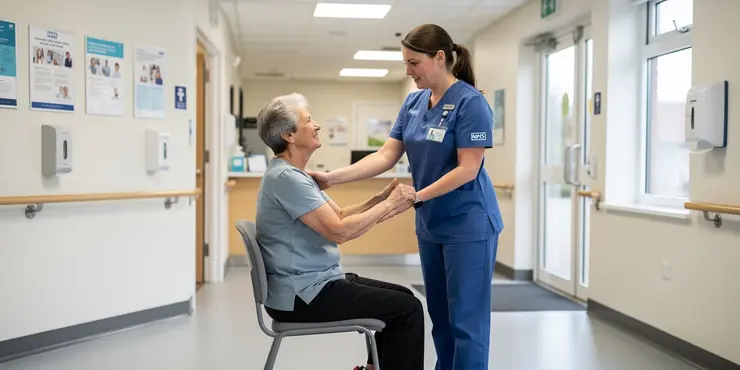
How physically demanding is a career in NHS nursing?
Relevance: 37%
-
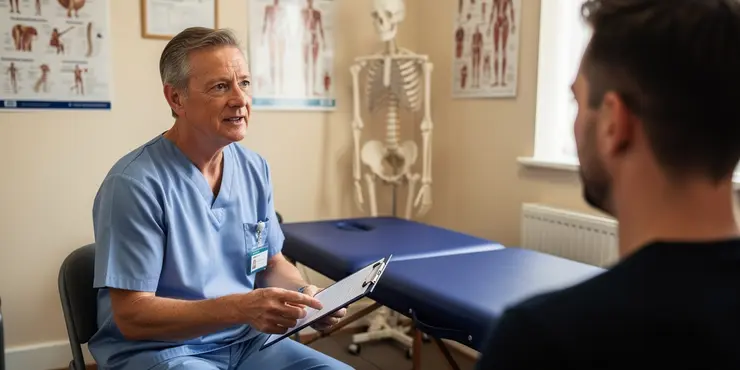
Do chiropractors prescribe medications?
Relevance: 36%
-
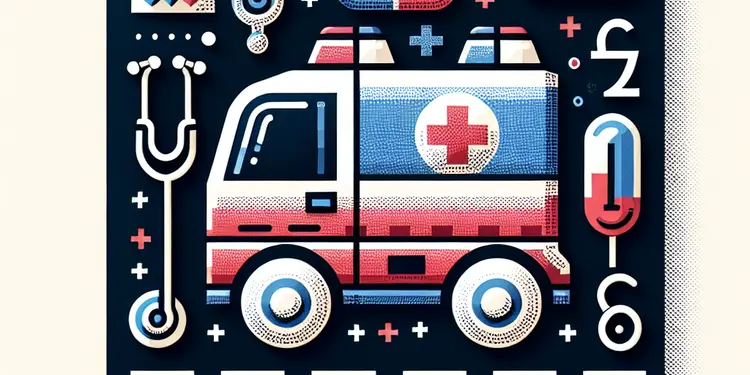
Is hypotony a medical emergency?
Relevance: 36%
-

Is medication effective for health-related anxiety?
Relevance: 35%
-
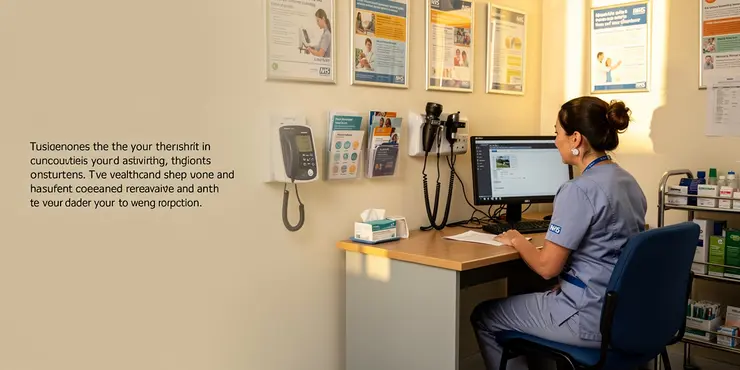
Can GLP-1 be used as a medication?
Relevance: 35%
-
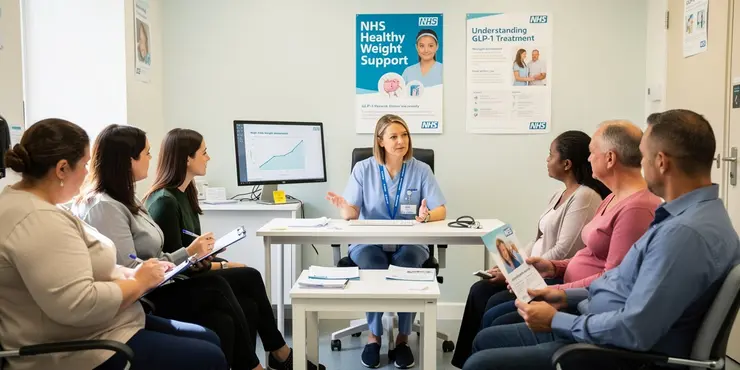
Do GLP-1 medications affect weight?
Relevance: 35%
-

Is tinnitus a common condition?
Relevance: 34%
GP Nursing Most Common Medications in the UK
Introduction to GP Nursing Medications
General Practice (GP) nursing is a crucial component of the UK healthcare system, with nurses playing a key role in managing and treating a wide variety of health conditions. To provide effective care, GP nurses frequently administer and advise on several common medications. This article highlights some of the most commonly used medications in GP nursing across the United Kingdom.Antihypertensives
Hypertension, or high blood pressure, is a prevalent condition treated by GP nurses. Common antihypertensive medications include ACE inhibitors like Ramipril, beta-blockers such as Bisoprolol, calcium channel blockers like Amlodipine, and diuretics such as Bendroflumethiazide. These medications help in lowering and managing blood pressure, which in turn reduces the risk of cardiovascular diseases.Statins
Statins, including Atorvastatin and Simvastatin, are widely used to lower cholesterol levels in the blood. These medications are critical in preventing cardiovascular events like heart attacks and strokes. GP nurses often counsel patients on the importance of adherence to their statin therapy and monitor any potential side effects.Antibiotics
Treating bacterial infections is a common responsibility for GP nurses. Amoxicillin, a penicillin antibiotic, is frequently prescribed for a variety of infections. Other common antibiotics include Azithromycin and Doxycycline. Ensuring correct usage and educating patients about the dangers of antibiotic resistance is a pivotal role for nurses.Antidepressants
Mental health management is a growing area within GP practices. Medications like Sertraline (an SSRI) and Amitriptyline (a tricyclic antidepressant) are common treatments for depression and anxiety disorders. GP nurses support patients through regular monitoring and by providing advice on coping strategies alongside medication adherence.Analgesics
Pain management is another significant aspect of GP nursing. Common analgesics include Paracetamol for mild pain relief and stronger opioids like Codeine for more severe pain. NSAIDs (Nonsteroidal Anti-inflammatory Drugs) such as Ibuprofen are also regularly used. Nurses ensure patients understand the safe use of these medications, including potential side effects.Diabetes Medications
The management of diabetes is a major part of GP nursing. Metformin is frequently prescribed for Type 2 diabetes to control blood sugar levels. Insulin therapy is also commonly managed by GP nurses for patients with Type 1 diabetes or more advanced Type 2 diabetes. Regular monitoring and patient education on lifestyle changes are critical elements of diabetes management.Conclusion
GP nurses in the UK are at the forefront of managing a wide array of health conditions, using a variety of medications to ensure optimal patient outcomes. From handling chronic diseases like hypertension and diabetes to addressing mental health issues and infections, the role of the GP nurse is essential in today's healthcare landscape. By understanding these commonly used medications and their applications, GP nurses can continue to provide high-quality care to their patients.GP Nursing Most Common Medications in the UK
Introduction to GP Nursing Medications
General Practice (GP) nurses in the UK help many people stay healthy. They give and talk about common medicines. This guide will help you learn about some of the medicines GP nurses use a lot.Medicines for High Blood Pressure
High blood pressure means your blood is pushing too hard in your body. GP nurses give medicines to people with this problem. Some common medicines are Ramipril, Bisoprolol, Amlodipine, and Bendroflumethiazide. These help keep blood pressure normal and can prevent heart problems.Medicines for High Cholesterol
Statins, like Atorvastatin and Simvastatin, help lower cholesterol—a fat in your blood. This keeps your heart healthy. GP nurses help people take these medicines safely and check for any side effects.Medicines for Infections
GP nurses give antibiotics to fight infections caused by bacteria. A common one is Amoxicillin. Others are Azithromycin and Doxycycline. Nurses teach people how to take these medicines and explain why it’s important to finish the whole course.Medicines for Mental Health
Sometimes, people feel very sad or worried. GP nurses give medicines like Sertraline and Amitriptyline to help. These help with depression and anxiety. Nurses also give advice on feeling better in other ways.Medicines for Pain
Many people have pain. GP nurses give medicines like Paracetamol for small pains and Codeine for bigger pains. Ibuprofen can also help. Nurses teach people how to use these safely and what side effects to watch for.Medicines for Diabetes
GP nurses help people with diabetes keep their sugar levels normal. Metformin is a common medicine for this. Some people might also need insulin. Nurses explain how to take these medicines and give tips on eating healthier and exercising.Conclusion
GP nurses in the UK are important for helping people with health problems like high blood pressure, high cholesterol, infections, mental health issues, pain, and diabetes. By using the right medicines, GP nurses help people feel better and stay healthy.Frequently Asked Questions
What are some common blood pressure medications prescribed by GPs?
Common blood pressure medications include ACE inhibitors (e.g., ramipril), beta-blockers (e.g., bisoprolol), calcium channel blockers (e.g., amlodipine), and diuretics (e.g., furosemide).
Which medications are typically used to lower cholesterol levels?
Statins, such as atorvastatin and simvastatin, are commonly prescribed to lower cholesterol levels.
What are common medications used to manage diabetes?
Common medications for diabetes include metformin, sulfonylureas (e.g., gliclazide), DPP-4 inhibitors (e.g., sitagliptin), and insulin.
Which medications are often prescribed for asthma management?
Asthma medications often include inhaled corticosteroids (e.g., fluticasone), long-acting beta agonists (e.g., salmeterol), and leukotriene receptor antagonists (e.g., montelukast).
What are common pain relief medications?
Common pain relief medications include paracetamol, ibuprofen, codeine, and tramadol.
What antibiotics are frequently prescribed by GPs?
Frequently prescribed antibiotics include amoxicillin, doxycycline, and clarithromycin.
Which medications are commonly used to treat depression?
Common antidepressants include selective serotonin reuptake inhibitors (SSRIs) like sertraline and citalopram, and serotonin-norepinephrine reuptake inhibitors (SNRIs) like venlafaxine.
What medications are typically prescribed for anxiety?
Medications for anxiety often include SSRIs (e.g., fluoxetine), benzodiazepines (e.g., diazepam), and beta-blockers (e.g., propranolol).
What medications are used for hypothyroidism?
Levothyroxine is the most commonly prescribed medication for hypothyroidism.
What are common medications to treat gastrointestinal conditions like acid reflux?
Common medications for acid reflux include proton pump inhibitors (PPIs) like omeprazole and H2-receptor antagonists like ranitidine.
Which medications are often used for arthritis pain?
Common medications for arthritis include non-steroidal anti-inflammatory drugs (NSAIDs) like ibuprofen, and corticosteroids like prednisone.
What medications are often prescribed for insomnia?
Medications for insomnia may include zolpidem, zopiclone, and sometimes low-dose antidepressants like amitriptyline.
What are common medications for allergic rhinitis or hay fever?
Antihistamines like cetirizine and loratadine, as well as corticosteroid nasal sprays like fluticasone, are common treatments.
What treatments are available for migraines?
Common treatments for migraines include triptans (e.g., sumatriptan), NSAIDs (e.g., ibuprofen), and antiemetics (e.g., metoclopramide) for nausea.
Which medications are prescribed for chronic obstructive pulmonary disease (COPD)?
Medications for COPD may include short-acting bronchodilators (e.g., salbutamol), long-acting bronchodilators (e.g., tiotropium), and inhaled corticosteroids (e.g., budesonide).
What are common blood pressure medicines from doctors?
Doctors give people medicines to help control their blood pressure.
Some common ones are listed below. Remember, always listen to your doctor.
- Amlodipine: A pill that helps your heart and blood flow.
- Lisinopril: Helps open up your blood vessels, making it easier for blood to flow.
- Atenolol: Helps your heart beat slower and with less force.
- Losartan: Opens up blood vessels and helps the heart work better.
Ways to remember your medicine:
- Use a pill box with days of the week.
- Set an alarm on your phone.
Some medicines help with high blood pressure. These medicines have different names:
- One type is ACE inhibitors. An example is ramipril.
- Another type is beta-blockers. An example is bisoprolol.
- There are calcium channel blockers too. An example is amlodipine.
- Diuretics are also used. An example is furosemide.
If reading is hard, you can try tools like audiobooks or ask someone to read with you. Picture cards for each medicine might help you remember them.
What medicines can help make cholesterol lower?
Cholesterol is a type of fat in your blood. Too much cholesterol can be bad for your heart. Some medicines can help lower cholesterol. You can talk to your doctor or pharmacist to know more.
If reading is tricky, you can ask someone to help you read. You can also use audiobooks or text-to-speech tools to listen instead of reading.
Statins are medicines. They help bring down bad cholesterol in your blood. These medicines have names like atorvastatin and simvastatin.
What medicines help people with diabetes?
People with diabetes may need medicine to help their bodies use sugar properly.
Here are some common medicines:
- Insulin: Helps the body use sugar when it cannot make enough insulin.
- Metformin: Helps lower blood sugar.
- Sulfonylureas: Helps the body make more insulin.
- DPP-4 inhibitors: Helps keep sugar low without gaining weight.
- GLP-1 receptor agonists: Helps control sugar by helping the body release insulin after eating.
Talk to a doctor to find the right medicine for you.
It also helps to eat healthy and move your body every day.
People with diabetes often take medicines to help them. Some common medicines are:
- Metformin
- Sulfonylureas (like gliclazide)
- DPP-4 inhibitors (like sitagliptin)
- Insulin
Tools like picture cards or apps can help you learn about these medicines. Visit your doctor or a nurse to know more and get help.
What medicines do doctors often give to help with asthma?
People with asthma often use special medicines to help them breathe better. These medicines are:
- Inhalers with medicine like "fluticasone" that you breathe in through your mouth.
- Other kinds of inhalers that have a medicine called "salmeterol" to help keep your airways open for a long time.
- Pills like "montelukast" that help stop your airways from getting too tight.
If you're finding this information hard to understand, try using drawings to show each medicine. You can also ask someone you trust to read it with you and explain the parts you don’t get.
What are some common medicines to help with pain?
Pain relief medicine can help you feel better. Some common types are paracetamol, ibuprofen, codeine, and tramadol.
What antibiotics do doctors often give?
Doctors often give out medicines called antibiotics to help you get better when you are sick.
Some common ones are amoxicillin, doxycycline, and clarithromycin.
If you find it hard to understand these words, ask a grown-up to help you read them.
What medicines help people who feel very sad?
Here is a simple guide to help understand medicines that help when you feel very sad or down. You can use these tools to help you:
- Work with a doctor to find the right medicine.
- Ask a trusted adult for help if you find it hard to choose.
- Talk about how the medicine makes you feel with someone you trust.
Some medicines that help with sadness are called antidepressants. Examples are:
- SSRIs like sertraline and citalopram.
- SNRIs like venlafaxine.
These medicines help make you feel better if you are sad a lot of the time.
If you find it hard to read, you can ask someone to help you. Also, you can use audiobooks or apps that read text to you.
What medicines do doctors give for feeling very worried?
Anxiety medicine can help you feel better. Here are some types:
- SSRIs: This is a kind of medicine. One example is fluoxetine.
- Benzodiazepines: This is another kind. One example is diazepam.
- Beta-blockers: This is also a kind of medicine. One example is propranolol.
If you have trouble reading, try using a finger or a ruler to follow the words. You can also ask someone to read it with you.
What Medicines Help with Hypothyroidism?
Hypothyroidism is when your thyroid gland is not making enough hormones. This can make you feel tired and weak.
Doctors give people special medicine to help. The most common medicine is called Levothyroxine. It helps to replace the hormones your body needs.
If you have questions or it is hard to understand, you can ask a doctor or nurse. They can explain it in a simple way. You can also use pictures or videos to help you learn more.
Levothyroxine is a medicine doctors often give to people with low thyroid hormones. This is called hypothyroidism.
What medicines help with tummy problems like acid reflux?
Medicines that can help with tummy problems are: 1. **Antacids**: These medicines make the acid in your tummy less strong. 2. **H2 Blockers**: They stop your tummy from making too much acid. 3. **Proton Pump Inhibitors (PPIs)**: These are strong medicines that stop most of the acid your tummy makes. Remember, always talk to a doctor before taking any medicine. **Helpful tips:** - Use a pill box to remember when to take your medicine. - Ask a doctor or nurse if you don’t understand something about your medicine.Medicine for heartburn can help you feel better. Some common ones are called proton pump inhibitors (PPIs) like omeprazole. Another kind is H2-receptor antagonists, like ranitidine.
If you have trouble reading, try using a tool that reads the text out loud. Or, ask someone to read the text with you.
What medicines can help with arthritis pain?
Do you have pain from arthritis? Medicine can help you feel better. Here are some medicines doctors often use:
- Painkillers: These help stop the pain.
- Anti-inflammatory drugs: These help reduce swelling and pain.
- Topical creams: You rub these on your skin to help with pain.
- Disease-modifying drugs: These help slow down arthritis.
If you need help, you can:
- Ask a doctor or nurse.
- Use pictures to understand more.
- Write questions down to remember them.
Some medicines can help people with arthritis feel better. These medicines can help reduce pain and swelling. Common ones are ibuprofen and prednisone.
What medicines do doctors give for sleep problems?
Some medicines can help you sleep better if you have trouble sleeping. These might be zolpidem, zopiclone, and sometimes a small amount of a medicine called amitriptyline, which is also used for feeling down or sad.
What medicine can help with hay fever?
Medicines called antihistamines, like cetirizine and loratadine, can help. Nasal sprays with medicine like fluticasone can help too.
What can help if you have a migraine?
Migraines are really bad headaches. Here are some ways to help:
- Medicine: You can take medicine to stop the pain. Ask a doctor for the right one.
- Rest in a quiet, dark room: Lights and sounds can make migraines worse. Resting can help you feel better.
- Cool Cloth: Put a cool, wet cloth on your head or neck.
- Drink Water: Sometimes migraines come from not drinking enough water. Drink plenty of it.
- Relax: Take deep breaths or try relaxing exercises to calm down your body.
- Talk to a Doctor: If migraines keep happening, a doctor can help find more ways to stop them.
These tips can make migraines less painful. Remember to always ask a doctor if you need help.
When you have a migraine, there are medicines that can help. Some of these are called triptans, like sumatriptan. You can also take pain relievers like ibuprofen. If you feel like you might be sick to your stomach, there are medicines like metoclopramide to help with that.
If you find it hard to understand medical words, ask someone you trust to help you. A doctor or nurse can explain these medicines to you. You can also write down questions to take to your doctor or pharmacy.
What medicines are given for COPD?
COPD is a lung disease that makes it hard to breathe. There are medicines that doctors give to help people with COPD. These medicines make it easier to breathe and help you feel better.
To understand COPD better, you can ask your doctor or nurse to explain it slowly. You can also use pictures to help you learn about how the lungs work.
Tools like voice recorders or talking apps on phones and tablets can help you remember what the doctor says.
Medicines for COPD can help you breathe better.
There are three types of medicines:
- Quick relief inhalers (like salbutamol): These help you breathe better fast.
- Long relief inhalers (like tiotropium): These help you breathe better all day.
- Inhaled steroids (like budesonide): These keep your lungs from getting swollen and help you breathe better.
If you need help using these inhalers, ask someone to show you how. You can also write down how you use them to remember better.
Useful Links
This website offers general information and is not a substitute for professional advice.
Always seek guidance from qualified professionals.
If you have any medical concerns or need urgent help, contact a healthcare professional or emergency services immediately.
Some of this content was generated with AI assistance. We’ve done our best to keep it accurate, helpful, and human-friendly.
- Ergsy carfully checks the information in the videos we provide here.
- Videos shown by Youtube after a video has completed, have NOT been reviewed by ERGSY.
- To view, click the arrow in centre of video.
- Most of the videos you find here will have subtitles and/or closed captions available.
- You may need to turn these on, and choose your preferred language.
- Go to the video you'd like to watch.
- If closed captions (CC) are available, settings will be visible on the bottom right of the video player.
- To turn on Captions, click settings .
- To turn off Captions, click settings again.
More Items From Ergsy search
-

GP Nursing Most Common Medications UK.
Relevance: 100%
-

Can I become a nurse in the NHS with a nursing diploma?
Relevance: 63%
-

The role of residential and nursing homes
Relevance: 61%
-

The role of residential & nursing homes
Relevance: 59%
-

How do I choose a good nursing home?
Relevance: 59%
-

Can I become an NHS nurse if I have international nursing qualifications?
Relevance: 59%
-

What skills are important for a career in nursing?
Relevance: 58%
-

How are care homes different from nursing homes?
Relevance: 58%
-

Do I need to be registered with the Nursing and Midwifery Council (NMC) to work as an NHS nurse?
Relevance: 57%
-

What GCSEs or A-Levels do I need to become a nurse?
Relevance: 57%
-

Is it possible to study nursing part-time?
Relevance: 55%
-

How can I become an NHS Nurse in the UK?
Relevance: 55%
-

What types of nursing degrees can I pursue?
Relevance: 55%
-

What is the process for applying to a nursing degree course?
Relevance: 54%
-

What are the career progression opportunities for NHS nurses?
Relevance: 54%
-

What funding options are available for nursing students in the UK?
Relevance: 53%
-

Is there a minimum age requirement to start nurse training?
Relevance: 53%
-

What are the basic educational requirements to become an NHS nurse?
Relevance: 53%
-

Are there any apprenticeship routes to becoming an NHS nurse?
Relevance: 53%
-

How important is work experience for entering a nursing program?
Relevance: 53%
-

Do care homes provide medical care?
Relevance: 52%
-

How long does it take to become an NHS nurse?
Relevance: 52%
-

Are there any common side effects of GLP-1 medications?
Relevance: 51%
-

What medications are commonly prescribed for heart failure?
Relevance: 50%
-

What medications are commonly used to treat BPH?
Relevance: 50%
-

Is live-in care an alternative to nursing homes?
Relevance: 50%
-

Will I still have access to doctors and nurses on a virtual ward?
Relevance: 50%
-

What support systems are available to NHS nurses for continuing professional development?
Relevance: 49%
-

Are headaches a common side effect of weight loss medications?
Relevance: 47%
-

Does live-in care include medical services?
Relevance: 47%
-

South London Arrhythmia Nurses Forum (16 June 2022)
Relevance: 41%
-

Can I specialize in a certain area of nursing with the NHS?
Relevance: 37%
-

Are GLP-1 medications injectable?
Relevance: 37%
-

How physically demanding is a career in NHS nursing?
Relevance: 37%
-

Do chiropractors prescribe medications?
Relevance: 36%
-

Is hypotony a medical emergency?
Relevance: 36%
-

Is medication effective for health-related anxiety?
Relevance: 35%
-

Can GLP-1 be used as a medication?
Relevance: 35%
-

Do GLP-1 medications affect weight?
Relevance: 35%
-

Is tinnitus a common condition?
Relevance: 34%


